L
Kimunya’s US visit an eye-opener for Diaspora
By James Sang
Those who attended the recent Kenya Business and Investment Forum in Washington, DC, would agree that the organisers, including the Kenyan embassy, did a superb job. The speakers gave useful information on business in Kenya.The theme, Kenya is Open for Business, was apt. Four personalities were impressive — Finance minister Mr Amos Kimunya, Information and Communication Permanent Secretary Dr Bitange Ndemo, Economic Secretary Dr Kamau Thugge and Kenya Investment Authority Managing Director Ms Susan Kikwai. Kikwai lived in DC Baltimore until a few years ago when she went back home.Thugge is also a former resident and brilliant economist (former IMF senior economist). Others who made presentations were Ms Laila Macharia, representing a real estate company in Nairobi, Mr Peter Wairegi, a successful Kenyan businessman in Ohio, and Mr Edwin Nyambeche, Postapay’s representative in the US.Postapay went global a few weeks ago and Kenyans need not send money home through foreing-owned services. It has an office in Baltimore.Ndemo gave an illustration of the good things to come in the information technology sector. In a Powerpoint presentation, he explained how, in the next few months, Kenya will benefit from a new communications infrastructure, a fibre-optic cable being laid between Fujaira in the United Arab Emirates and Mombasa.He disclosed that the terrestrial broadband infrastructure is almost complete. The cable to Malaba is complete and ready for business. Kenyans will use the service in the next eight months. Prior to the meeting, Ndemo had been at Google headquarters in California, where he was promised that the company would build a hub in Nairobi, once the cable is complete. The PS also announced that 50,000 University of Nairobi students would be the first to use Google Apps — an online software. This will be extended to 150,000 students in other universities in the country. He also talked about the explosion of the wireless industry in Kenya.
He recalled that in the 1990s, the joke was that Kenya would not have more than 600,000 mobile phone subscribers. Kimunya said one of the requirements for obtaining a wireless licence was for phone companies to sign up at least 600,000 subscribers. Today, the subscriber base is 10 million.
What impressed most about Kimunya was his eloquence in weaving the economic figures to defend the Government’s record. Nobody expected him to denigrate the Government, of course, but his presentation was a work of art.
However, he scared the audience when he said all the gains that have been made could go up in smoke in the "very unlikely event of a regime change" in the elections later this year.
The minister gave figures that showed how the economy is growing and who was responsible for it. Kimunya cited several parastatals that the Government has revived and how farmers’ returns had improved.
He also went at length to explain the merits of the Kenya Vision 2030, whose annual economic growth target is 10 per cent for the next 23 years. Hopefully, it should turn Kenya into a middle-income nation — an African tiger.
But the function had moments of drama, especially during question time. Most questions were either the run-of-the-mill ‘how-do-you-plan-to-solve-world-hunger’ variety or subject-specific, sometimes laced with a little emotion.
Some assured the minister that Kenyans abroad were patriotic, and that some of the noisemakers who malign their country were good-for-nothing losers. The minister and some in the audience were in agreement with such sentiments.
But other questions were against the grain and went unanswered. A member of the audience derided the minister for painting a rosy picture, yet corruption was, in his words, eating the very fabric of society.
He cited the example of telecommunications licensing, pointing out that when he and a group of Kenyans sought a mobile license, Government officials cheated them out of the process. He claimed that the licence was instead awarded to a ‘briefcase’ entity which, to date, has not been able to offer any mobile services.
The minister simply ignored the issue, concentrating instead on non-specific corruption-related questions. He took a swipe at those criticising the Government on corruption and asked: "What is corruption? Must we parade bodies just to show that we are fighting corruption?"
The minister did not also discuss the relationship between the figures that he had just presented and the stark reality that 50 per cent of Kenyans live below the poverty line.
Kimunya glossed over the slum problem and mentioned something about a slum-upgrading project. On dual-citizenship, the minister stated that the issue took the same route the Wako Draft took. He did not elaborate.
Ms Mkawasi Mcharo, the chair of the Kenya Community Abroad, said Kenyans abroad are active participants in Kenya’s affairs and should have the right to vote.
Kenyans should attend such functions especially when Government officials and other leaders visit the United States. The Kenyan embassy is also a good source of information on the opportunities at home.
The next major event in Washington will be held next week when Finance Ministers from East African countries meet the region’s citizens.
The writer is a Kenyan in Washington DC who works for the Norwegian Council for AfricaILA NA FILA HAVITANGAMANI
Subscribe to:
Post Comments (Atom)



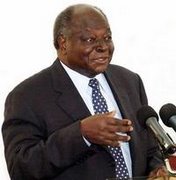

















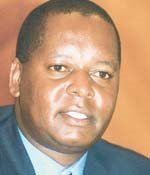
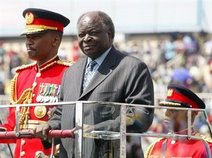
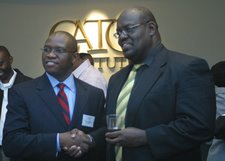











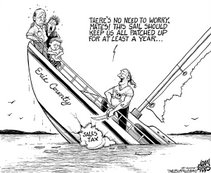
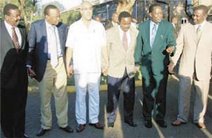
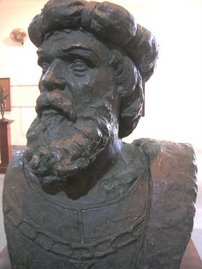
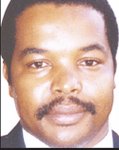
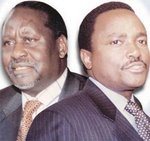
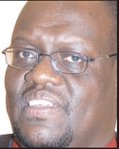

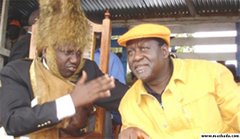





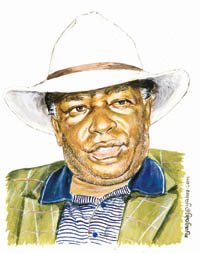

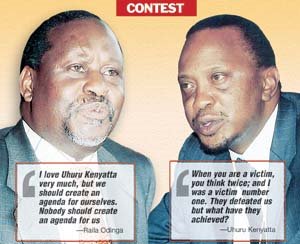

158 comments:
Post a Comment